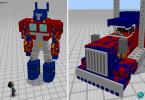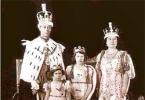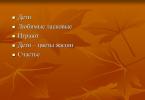Parsing sentences - this is the analysis of the sentence by members and parts of speech. You can perform syntactic analysis of a complex sentence according to the proposed plan. The sample will help to properly format the written analysis of the sentence, and the example will reveal the secrets of oral parsing.
Sentence parsing plan
1. Simple, simple, complicated homogeneous members, or complex
2. According to the purpose of the statement: narrative, interrogative or incentive.
3. By intonation: exclamatory or non-exclamatory.
4. Common or non-common.
5. Determine the SUBJECT. Ask WHO? or WHAT? Underline the subject and determine what part of speech it is.
6. Define the PREDICTION. Ask questions WHAT DOES IT DO? etc. Underline the predicate and determine what part of speech it is expressed.
7. From the subject, ask questions to minor members suggestions. Underline them and determine what parts of speech they are expressed. Write out phrases with questions.
8. From the predicate, ask questions to the minor members. Underline them and determine what parts of speech they are expressed. Write out phrases with questions.
Sentence Parsing Sample
Already the sky breathed in autumn, the sun shone less often.
This proposal is complex First part:
(what?) the sky is the subject, expressed by the noun in singular. h., Wed. r., nar., inanimate, 2 cl., and. P.
(what did it do?) breathed - a predicate, expressed by the verb nes. species, 2 ref., in unit h., past. vr., wed. R.
breathed (what?) in autumn - an addition, expressed by a noun in singular. h., w. r., nat., inanimate, 3 cl., etc.
breathed (when?) already - a circumstance of time, expressed in an adverb
The second part:
(what?) the sun is the subject, expressed by the noun in singular. h., Wed. r., nar., inanimate, 2 cl., and. P.
(what did it do?) shone - a predicate, expressed by the verb nes. species, 1 ref., in unit h., past. vr., wed. R.
shone (how?) less often - a circumstance of the manner of action, expressed by an adverb
shone (when?) already - a circumstance of time, expressed in an adverb
An example of parsing a sentence
They then flew obliquely in the wind, then lay down vertically on the damp grass.
This proposal is simple.
(what?) they are the subject, expressed by the pronoun pl. h., 3 l., and. P.
(what did they do?) flew - a homogeneous predicate, expressed by the verb non-view, 1 sp., pl. h.. past. vr..flyed
(what did they do?) lay down - a homogeneous predicate, expressed by the verb nes.vid, 1 sp., pl. h.. past. vr..
flew (how?) obliquely - a circumstance of the manner of action, expressed by an adverb.
flew (how?) in the wind - a circumstance of the course of action, expressed by the adverb
lay down (how?) sheer - circumstance of the manner of action, expressed by the adverb
lay down (where?) on the grass - a circumstance of the place, expressed by the noun adverb, inanimate, in singular. h., w. r., 1 fold, v.p. with a pretext
grass (what?) raw - a definition, expressed by an adjective in singular. h., female, v.p.
I woke up on a gray morning. The room was filled with a steady yellow light, as if from a kerosene lamp. The light came from below, from the window, and illuminated the log ceiling most brightly.
Strange light - dim and motionless - was unlike the sun. It was shining autumn leaves. During the windy and long night, the garden shed dry leaves, they lay in noisy piles on the ground and spread a dull glow. From this radiance, the faces of people seemed tanned, and the pages of the books on the table seemed to be covered with a layer of wax.
This is how autumn began. For me, it came right away this morning. Until then, I hardly noticed it: there was still no smell of rotten leaves in the garden, the water in the lakes did not turn green, and the burning hoarfrost did not yet lie in the morning on the plank roof.
Autumn has come suddenly. This is how a feeling of happiness comes from the most inconspicuous things - from a distant steamboat whistle on the Oka River or from a random smile.
Autumn came by surprise and took possession of the earth - gardens and rivers, forests and air, fields and birds. Everything immediately became autumnal.
Tits were bustling about in the garden. Their scream was like breaking glass. They hung upside down on the branches and peered through the window from under the maple leaves.
Every morning in the garden, like on an island, migratory birds gathered. Whistling, screeching and croaking, there was a commotion in the branches. Only during the day it was quiet in the garden: restless birds flew south.
The leaf fall has begun. Leaves fell day and night. They then flew obliquely in the wind, then lay down vertically in the damp grass. The forests were drizzling with a rain of falling leaves. This rain has been going on for weeks. Only towards the end of September the copses were exposed, and through the thicket of trees the blue distance of the compressed fields became visible.
At the same time, old Prokhor, a fisherman and basket maker (in Solotch almost all old people become basket makers with age), told me a tale about autumn. Until then, I had never heard this tale - Prokhor must have invented it himself.
You look around, - Prokhor told me, picking his bast shoes with an awl, - you look closely, dear person, than every bird or, say, some other living creature breathes. Look, explain. And they will say: I studied in vain. For example, a leaf flies off in the fall, and people are unaware that a person in this case is the main defendant. Man, let's say, invented gunpowder. Enemy tear it apart with that gunpowder! I myself also dabbled in gunpowder. In ancient times, the village blacksmiths forged the first gun, stuffed it with gunpowder, and that gun hit the fool. The fool was walking through the forest and saw how the orioles were flying under the sky, yellow cheerful birds were flying and whistling, inviting guests. The fool hit them with both trunks - and the golden fluff flew to the ground, fell on the forests, and the forests withered, withered and fell down overnight. And other leaves, where the bird's blood got, turned red and also crumbled. I suppose I saw in the forest - there is a yellow leaf and there is a red leaf. Until that time, all birds wintered with us. Even the crane did not move anywhere. And the forests both summer and winter stood in leaves, flowers and mushrooms. And there was snow. There was no winter, I say. Did not have! Why the hell did she give herself up to us, winter, pray tell?! What is her interest? The fool killed the first bird - and the earth became sad. Since that time, leaf fall, and wet autumn, and leafy winds, and winters began. And the bird was frightened, flies away from us, offended by a person. So, dear, it turns out that we have harmed ourselves, and we need not to spoil anything, but to take good care of it.
What to save?
Well, let's say a different bird. Or a forest. Or water, so that there is transparency in it. Take care of everything, brother, otherwise you will be thrown by the earth and you will be thrown to death.
I studied autumn stubbornly and for a long time. In order to see for real, you need to convince yourself that you are seeing this for the first time in your life. It was the same with autumn. I assured myself that this autumn is the first and last in my life. This helped me to peer into it more closely and see much that I had not seen before, when the autumns passed, leaving no trace, except for the memory of slush and wet Moscow roofs.
I learned that autumn mixed all the pure colors that exist on earth, and applied them, like on a canvas, to the distant expanses of earth and sky.
I saw foliage, not only gold and purple, but also scarlet, purple, brown, black, gray and almost white. The colors seemed especially soft because of the autumn haze that hung motionless in the air. And when it rained, the softness of the colors gave way to brilliance. The sky, covered with clouds, still gave enough light so that the wet forests could ignite in the distance like crimson fires. In the pine thickets, the birch trees were shivering from the cold, showered with gold leaf. The echo from the blows of an ax, the distant hooting of women and the wind from the wings of a flying bird shook off this foliage. Around the trunks lay wide circles of fallen leaves. The trees were beginning to turn yellow below: I saw aspens, red at the bottom and still quite green at the top.
One autumn day I was boating on the Prorva. It was noon. The low sun hung in the south. Its oblique light fell on the dark water and reflected from it. Stripes of sunlight from the waves raised by the oars ran measuredly along the banks, rising from the water and fading in the tops of the trees. Bands of light penetrated the thicket of grasses and bushes, and for an instant the banks flared up with hundreds of colors, as if a sunbeam struck in placers of multi-colored ore. The light revealed either black shiny grass stalks with orange dried berries, then the fiery caps of fly agarics, as if spattered with chalk, then ingots of caked oak leaves and the red backs of ladybugs.
Often in autumn I would watch the falling leaves closely to catch that imperceptible split second when the leaf separates from the branch and begins to fall to the ground. But I didn't succeed for a long time. I have read in old books about the sound of falling leaves, but I have never heard that sound. If the leaves rustled, it was only on the ground, under the feet of a person. The rustle of leaves in the air seemed to me as unbelievable as stories about hearing the grass grow in spring.
I was, of course, wrong. Time was needed so that the ear, dulled by the rattle of the city streets, could rest and catch the very clear and precise sounds of the autumn earth.
Late one evening I went out into the garden, to the well. I put a dim "bat" kerosene lantern on the log house and got some water. Leaves were floating in the bucket. They were everywhere. There was nowhere to get rid of them. Black bread from the bakery was brought with wet leaves stuck to it. The wind threw handfuls of leaves on the table, on the bed, on the floor, on the books, otherwise it was difficult for the paths of the garden to walk: one had to walk on the leaves as if in deep snow. We found leaves in the pockets of our raincoats, in caps, in our hair - everywhere. We slept on them and soaked in their scent.
There are autumn nights, deafened and mute, when calmness hangs over the black wooded edge, and only the watchman's beater comes from the village outskirts.
It was just such a night. The lantern illuminated the well, the old maple under the fence, and the wind-torn nasturtium bush in the yellowed flower bed.
I looked at the maple tree and saw how a red leaf carefully and slowly separated from the branch, shuddered, stopped for a moment in the air and began to fall obliquely at my feet, slightly rustling and swaying. For the first time I heard the rustle of a falling leaf, a faint sound like a child's whisper.
Night stood over the hushed earth. The sheen of starlight was bright, almost unbearable. The autumn constellations shone in the bucket of water and in the small window of the hut with the same intensity as in the sky.
The constellations of Perseus and Orion passed their slow path above the earth, trembled in the water of the lakes, dimmed in the thickets where wolves dozed, and were reflected on the scales of fish sleeping on the shallows in Staritsa and Prorva.
By dawn, the green Sirius was lit up. His low fire was always tangled in the willow foliage. Jupiter was setting in the meadows over black haystacks and damp roads, and Saturn was rising from the other side of the sky, from the forests, forgotten and abandoned by man in autumn.
The starry night passed over the earth, dropping cold sparks of meteors, in the rustle of reeds, in the tart smell of autumn water.
At the end of autumn I met Prokhor on Prorva. Gray-haired and shaggy, covered with fish scales, he sat under willow bushes and fished for perches.
In Prokhor's eyes he was a hundred years old, no less. He smiled with his toothless mouth, pulled a fat crazy perch out of his purse and patted his fat side - he boasted of his prey.
Until evening we fished together, munching on stale bread and talking in an undertone about the recent forest fire.
It started near the village of Lopukhi, in a clearing where the mowers had forgotten the fire. Blew dry. The fire quickly drove north. He was moving at twenty kilometers an hour. It hummed like hundreds of aircraft strafing over the ground.
In the smoke-filled sky, the sun hung like a crimson spider on a dense gray web. Garr ate at his eyes. A slow rain of ash fell. It covered the river water with a gray coating. Sometimes birch leaves, turned into ashes, flew from the sky. They crumbled to dust at the slightest touch.
At night, a gloomy glow swirled in the east, cows mooed drearily around the yards, horses neighed, and white signal rockets flashed on the horizon - these were the Red Army units that extinguished the fire, warning each other of the approaching fire.
We returned from Prorva in the evening. The sun was setting behind the Eye. Between us and the sun lay a dull silver streak. This sun was reflected in the thick autumn cobwebs that covered the meadows.
During the day, the web flew through the air, tangled in the uncut grass, stuck with yarn on the oars, on the faces, on the rods, on the horns of the cows. It stretched from one bank of the Prorva to the other and slowly braided the river with light and sticky nets. In the mornings, dew settled on the cobwebs. Covered with cobwebs and dew, willows stood under the sun like fabulous trees transplanted to our lands from distant lands.
On each web sat a small spider. He wove a web while the wind carried him above the ground. He flew tens of kilometers on the web. It was a migration of spiders, much like the autumn migration of birds. But still no one knows why spiders fly every autumn, covering the ground with their finest yarn.
At home, I washed the cobwebs from my face and lit the stove. The smell of birch smoke mingled with the smell of juniper. An old cricket sang, and mice crawled under the floor. They dragged rich stocks into their holes - forgotten crackers and cinders, sugar and petrified pieces of cheese.
In the middle of the night I woke up. The second roosters crowed, the fixed stars burned in their usual places, and the wind rustled cautiously over the garden, patiently waiting for the dawn.
(1) Autumn came by surprise and took possession of the earth - gardens and rivers, forests and air, fields and birds. (2) Everything immediately became autumn.
(3) Tits fussed in the garden. (4) Their cry was like the sound of broken glass. (5) They hung upside down on the branches and looked out the window from under the maple leaves.
(6) Every morning in the garden, as on an island, migratory birds gathered. (7) Under the whistle, scream and croak in the branches, there was a flurry. (8) Only during the day it was quiet in the garden: restless birds flew south.
(9) Leaf fall has begun. (10) Leaves fell days and nights. (11) They either flew obliquely in the wind, or they lay vertically in the damp grass. (12) The forests drizzled with a rain of flying leaves. (13) It rained for weeks. (14) Only by the end of September the copses were exposed, and through the thicket of trees the blue distance of compressed fields became visible.
(15) Then the old man Prokhor, a fisherman and a basket maker (in Solotch almost all old people become basket makers with age), told me a tale about autumn. (16) Until then, I had never heard this fairy tale - it must have been Prokhor who invented it himself.
(17) - You look around, - Prokhor told me, picking his bast shoes with an awl, - you look closely, dear person, than every bird or, say, some other living creature breathes. (18) Look, explain. (19) Otherwise they will say: I studied in vain. (20) For example, a leaf flies off in the fall, but people are unaware that a person in this case is the main defendant. (21) A person, say, invented gunpowder. (22) Break his enemy along with that gunpowder! (23) I myself also dabbled in gunpowder. (24) In ancient times, the village blacksmiths forged the first gun, stuffed it with gunpowder, and that gun hit the fool. (25) A fool was walking through the forest and saw how the orioles were flying under the sky, yellow cheerful birds were flying and whistling, inviting guests. (26) The fool hit them from both trunks - and golden fluff flew to the ground, fell on the forests, and the forests withered, withered and fell down overnight. (27) And other leaves, where the bird's blood got, turned red and also crumbled. (28) I suppose I saw in the forest - there is a yellow leaf and there is a red leaf. (29) Until that time, all the birds wintered with us. (30) Even the crane didn’t go anywhere. (31) And the forests stood both summer and winter! (32) And in leaves, flowers and mushrooms. (33) And there was no snow. (34) There was no winter, I say. (35) It wasn't! (36) Yes, why did she surrender to us, winter, pray tell ?! (37) What is her interest? (38) The fool killed the first bird - and the earth became sad. (39) From that time on, leaf fall began, and wet autumn, and leafy winds, and winters. (40) And the bird got scared, flies away from us, offended by a person. (41) So, dear, it turns out that we have harmed ourselves, and we need not to spoil anything, but to take good care of it.
What to save?
Well, let's say a different bird. (44) Or the forest. (45) Or water, so that there is transparency in it. (46) That's it, brother, take care, otherwise you will be thrown by the earth and thrown to death.
(47) I studied autumn stubbornly and for a long time. (48) In order to truly see, you need to convince yourself that you are seeing this for the first time in your life. (49) So it was with the fall. (50) I assured myself that this autumn is the first and last in my life. (51) This helped me to peer into it more closely and see much that I had not seen before, when the autumns passed, leaving no trace, except for the memory of slush and wet Moscow roofs.
(52) I learned that autumn mixed all the pure colors that exist on earth, and applied them, like on a canvas, to the distant expanses of earth and sky.
(According to K. Paustovsky *)
* Konstantin Georgievich Paustovsky (1892-1968) - Russian writer, author of many stories and stories about native nature: "Meshcherskaya side", "The Tale of the Forests", "Northern Tale" and others. Paustovsky wrote a series of books about creativity and people of art: Orest Kiprensky, Isaac Levitan, Taras Shevchenko, Golden Rose.
Show full text
Is it necessary to protect nature? How should she be treated? Paustovsky discusses these questions in the cited text.
The author expresses his opinion through the fairy tale and parting words of the old man Prokhor. When the fool killed the merry birds, nature became sad, and summer began to give way to autumn and winter. Damaging nature we hurt ourselves. To preserve the beauty of nature, its usefulness for us, not to perish without it, We must take care of the world around us.
Q: Falling leaves have begun. Leaves fell day and night. They then flew obliquely in the wind, then lay down vertically in the damp grass. Often in autumn I would watch the falling leaves closely to catch that imperceptible split second when the leaf separates from the branch and begins to fall to the ground. I looked at the maple tree and saw how a red leaf carefully separated from the branch, shuddered, stopped for a moment in the air and began to fall obliquely at my feet, rustling and swaying. Each leaf was a masterpiece, the thinnest ingot of gold and bronze, sprinkled with vermilion and niello, each leaf was a perfect creation of nature, a work of its mysterious art. the author is trying to convey. Please help!
The leaf fall has begun. Leaves fell day and night. They then flew obliquely in the wind, then lay down vertically in the damp grass. Often in autumn I would watch the falling leaves closely to catch that imperceptible split second when the leaf separates from the branch and begins to fall to the ground. I looked at the maple tree and saw how a red leaf carefully separated from the branch, shuddered, stopped for a moment in the air and began to fall obliquely at my feet, rustling and swaying. Each leaf was a masterpiece, the thinnest ingot of gold and bronze, sprinkled with vermilion and niello, each leaf was a perfect creation of nature, a work of its mysterious art. the author is trying to convey. Please help!
Answers:
The text speaks of leaf fall, of art. The author tries to convey that every second is precious in life. And that second, that moment when the leaves fall and sometimes stop for a second in the air, there is a strange, but wonderful feeling. It talks about the beauty of nature.
Similar questions
- Write the names of the parts and elements of the ancient Greek theater. answer faster!
- Find GCD(128, 204)
- Look up, spring is coming, cranes are flying in a caravan, the day is drowning in bright gold, and streams are rustling along the ravines. indicate the case of each noun.
- How has Robinson Crusoe changed during the trials?
- Help me please! Make 3 sentences with the words: Run up, push away, jump over, tell. The proposals are complex and allied. With unions: to, which, because.
- "How Alaska was sold in 1867" write a short essay
- Are you Ivan and Stepan from the bus stop on the highway at the same time in opposite directions?




